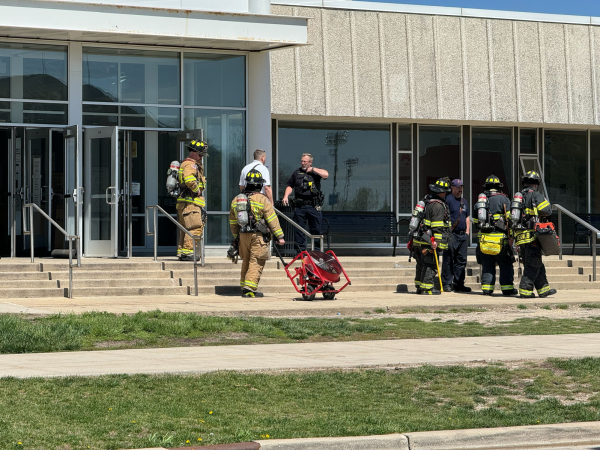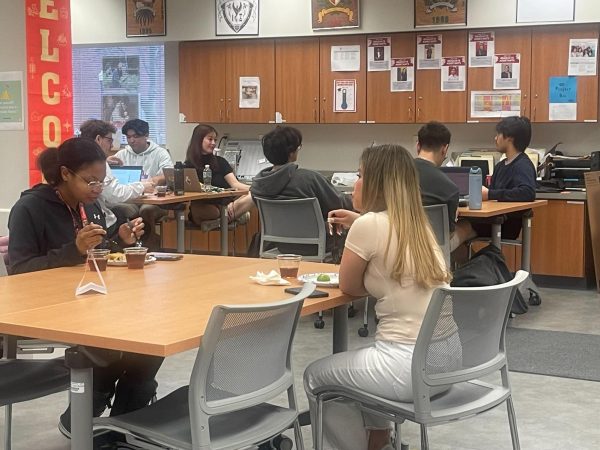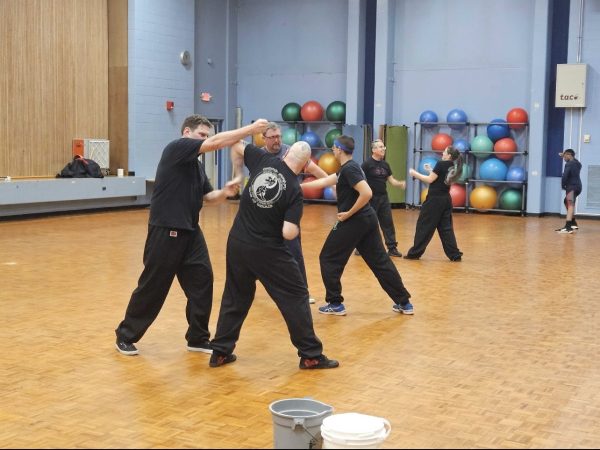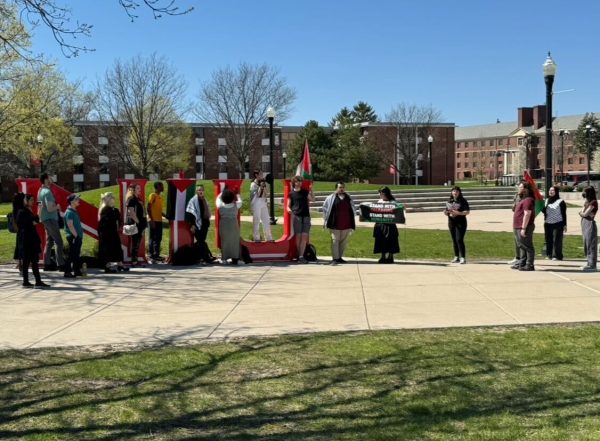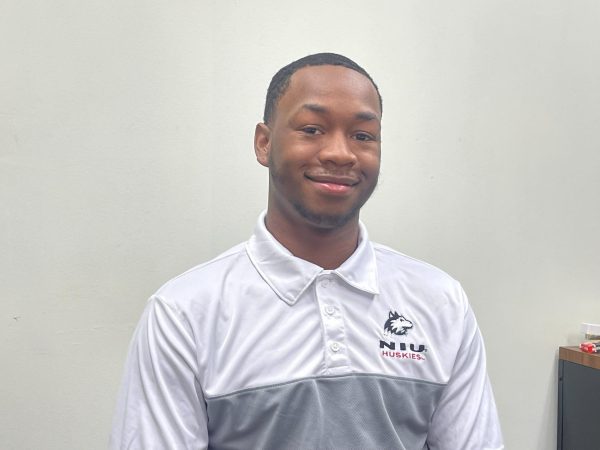ROTC students break away for spring field training
April 20, 2009
The twin-engine rotor blades of a Chinook military helicopter whipped in the wind at DeKalb Taylor Municipal airport on Thursday as NIU’s Army ROTC battalion boarded it to be taken to its spring field training exercises, exemplifying that change was in the air for the Huskie Battalion.
Every semester, the cadets of the Huskie Battalion break away from being NIU students and engage in field training exercises in Marseilles. There, they apply what they have learned in their military science classes and build leadership skills for a possible career in active service of the Army, Reserves or National Guard.
This year, however, changes have come to the ROTC program that have made some cadets excited for the program. One of those changes is in the program’s leadership. Lt. Col. Stephen Ashpes became the chair of the military science department in August 2008, putting him in charge of cadet field training and classroom education. He’s the officer making the changes to the program.
“I’d like to bring a couple things back into the program, things that get you’re blood cooking,” Ashpes said. “We like to pride ourselves that this is an experience that you can’t get in any other class at Northern.”
The battalion’s helicopter ride to Marseilles was also one of the many changes made to the exercises as students learned to board and unboard the transport while its blades were spinning. What once was an hour-and-a-half bus ride became a 20-minute airlift.
Over the Huskie Battalion’s three days of field training, the cadets trod through thorny brush and biting cold mornings with blank-loaded M16 rifles in hand and 40-pound packs on their backs to run exercises such as ambushing an enemy, going on reconnaissance missions and assaulting enemy bunkers.
But as they did their normal exercises, they were treated to more changes in the program such as paintball matches, a forward-operating base camp already set up for them upon arrival, catered dinners in a mess hall and an openness between the cadets and cadre (the noncommissioned military officers overseeing them).
“What we’re trying do is get them to come to us as cadre and discuss any problems or issues and even among themselves,” said Maj. Norman Cosby, the executive officer of the Huskie Battalion. “I think a more relaxed environment, under Col. Ashpes, has allowed us to get more unit cohesion among the cadets.”
Some cadets believe the changes have reinvigorated their spirits for the program.
“[The helicopter] was a big morale booster,” said MS-III Cadet Rammell Nwaokai, senior kinesiology major, “It made people want to stay with the program and make future MS-I’s and II’s look at the program and say ‘okay, now this is neat.'”
MS-I Cadet Yesenia Juarez, sophomore sociology major, joined ROTC this year as she was recommended by a friend and held a positive outlook from what she has seen.
“After my first semester I felt that I can do this as a career,” Juarez said. “There’s a lot of us and me being a female I know I can keep up with all the males in the battalion, which is a testament to my limits mentally and physically.”
After the three days of training for the cadets, Cosby felt it was a success for the cadets and the cadre.
“It was an opportunity for the cadre to step back and actually allow the cadets to lead,” Cosby said. “We’ve only had two field training exercises this past year but this is the best example of cadet leadership we’ve had this year.”



